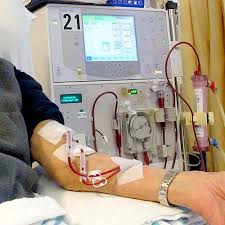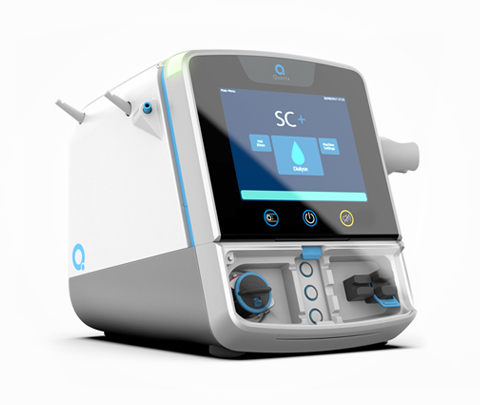
People with kidney failure could soon be spared regular trips to hospital thanks to a new dialysis machine the size of a microwave.
My late father used to visit a government dialysis centre twice a week, for almost 10 years. Fortunately, we had a friend who ferried him to the dialysis centre, which was about 10 km from our house. Some kidney patients are less fortunate who had to travel a distance to receive a dialysis treatment.
A British company, Quanta, had announced that it had has raised £38m from investors to launch a much smaller than traditional dialysis machines, called SC+. Currently only 5 per cent of UK kidney patients, some 1,500 people, are treated at home. Quanta, based in Warwickshire, United Kingdom, said patients could be taught how to use the SC+ either at home or at a self-service clinic.

John Milad, head of Quanta, said the device would allow dialysis patients to take “greater control of their lives”. In the future, dialysis could be as easy as visiting a “cash machine”.
“We believe there should be tens of thousands of them,” he added.
Approximately 3.5m people around the world require dialysis treatment.
Quanta was spun out of British engineering giant IMI in 2008, and was created after the technology used to mix soft drinks in bars was applied to blood dialysis. It now plans to ask for permission to launch the new compact dialysis machine in the US this year.
The cash injection came from several investors, including a private Swiss family office, Wellington Partners and Seroba Life Sciences.
Lifestyle choices, modern diet and increased life expectancy are all negatively impacting renal health across the globe and End Stage Renal Disease (ESRD) affects millions of patients worldwide. Haemodialysis is a lifesaving treatment delivered to an estimated 3 million people globally, with this figure expected to double in the next decade.
At present, haemodialysis is primarily provided by specialist clinics and centres. The rigid clinic scheduling means that the patient is not in control of when they can dialyse. It is clinically proven that more regular dialysis improves outcomes and quality of life for the patient, and a number of studies have shown that 30-40% of patients would be capable of performing self-care dialysis.
Issues of patient benefit, cost and clinic capacity are driving the growth of home and self-care modalities of haemodialysis. A major factor limiting the growth of self-care and home haemodialysis is the lack of convenient, compact and easy-to-use dialysis systems. Quanta addresses these issues and puts the focus on the patient, allowing them to take greater control of their treatment.
Visit website of Quanta: http://www.quantadt.com/